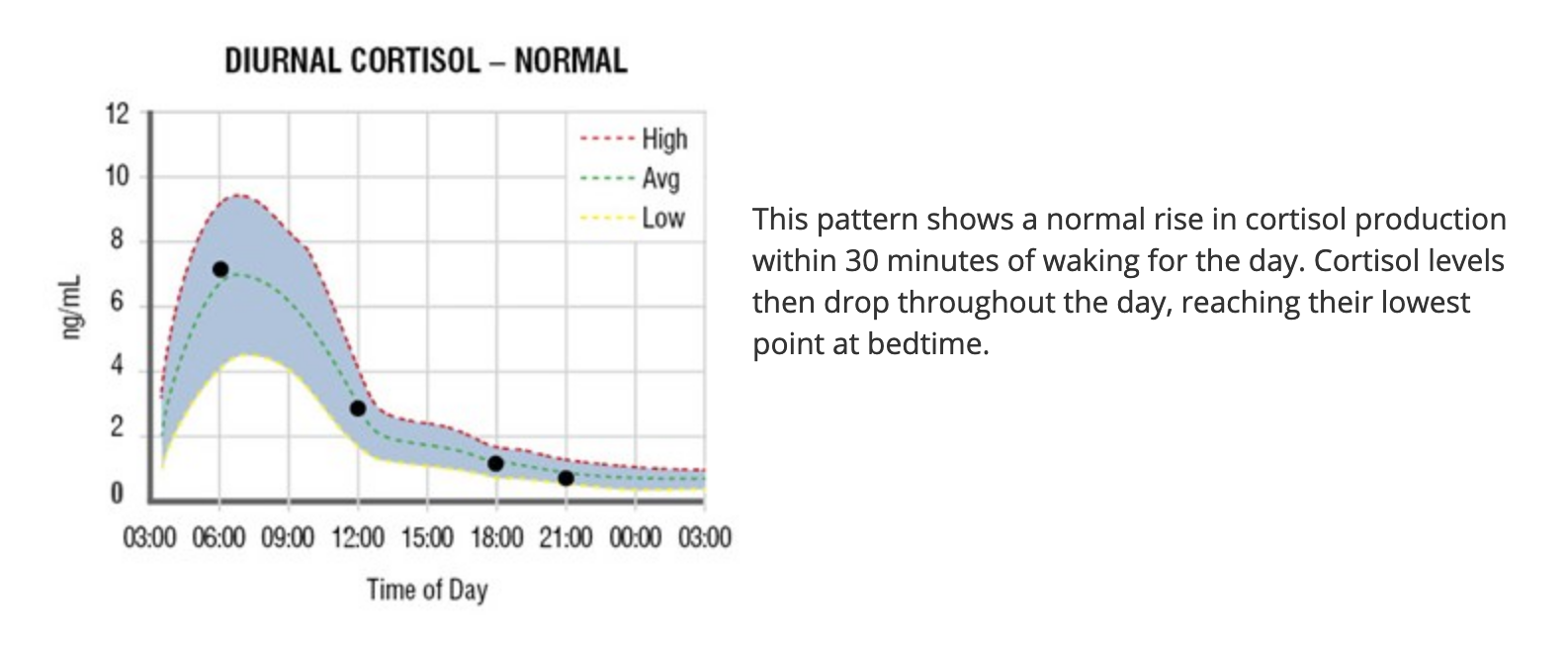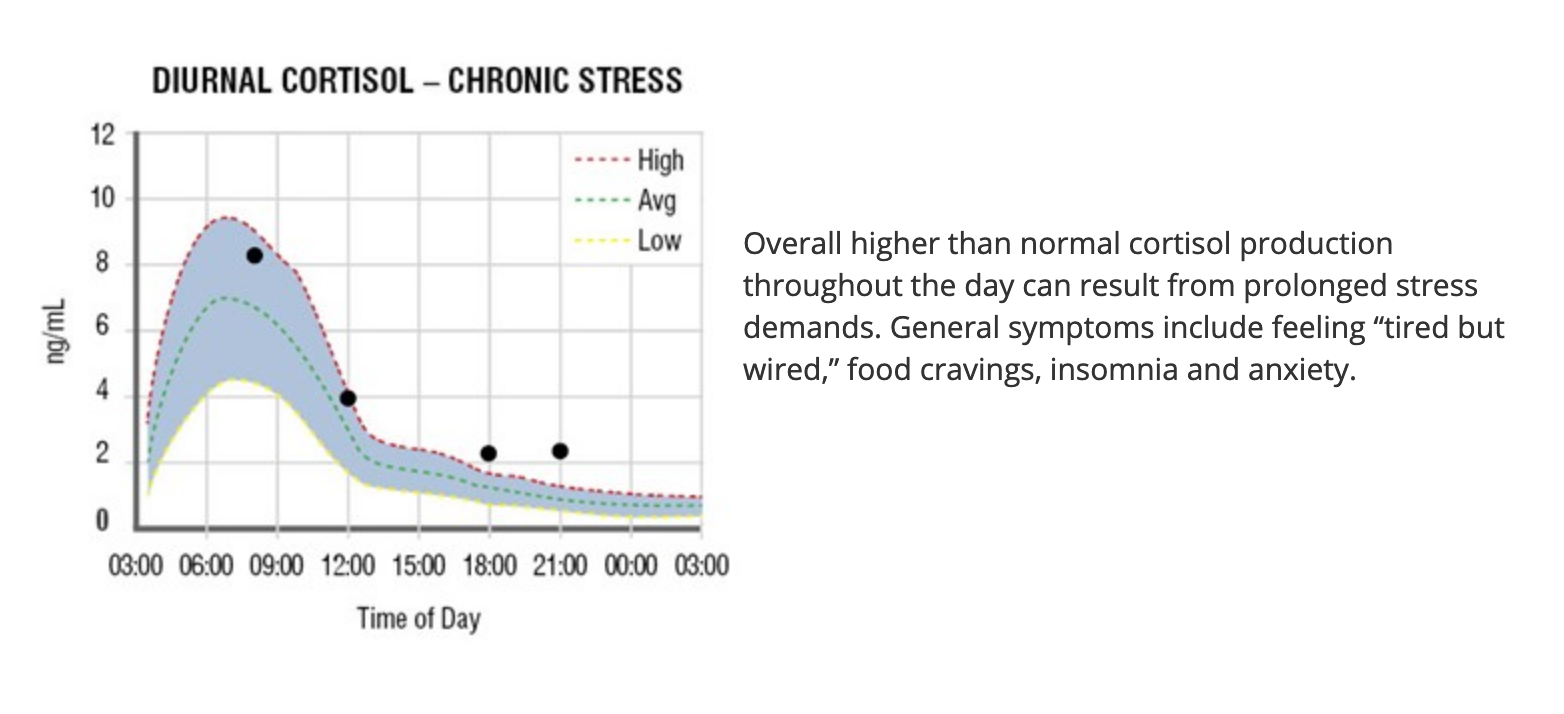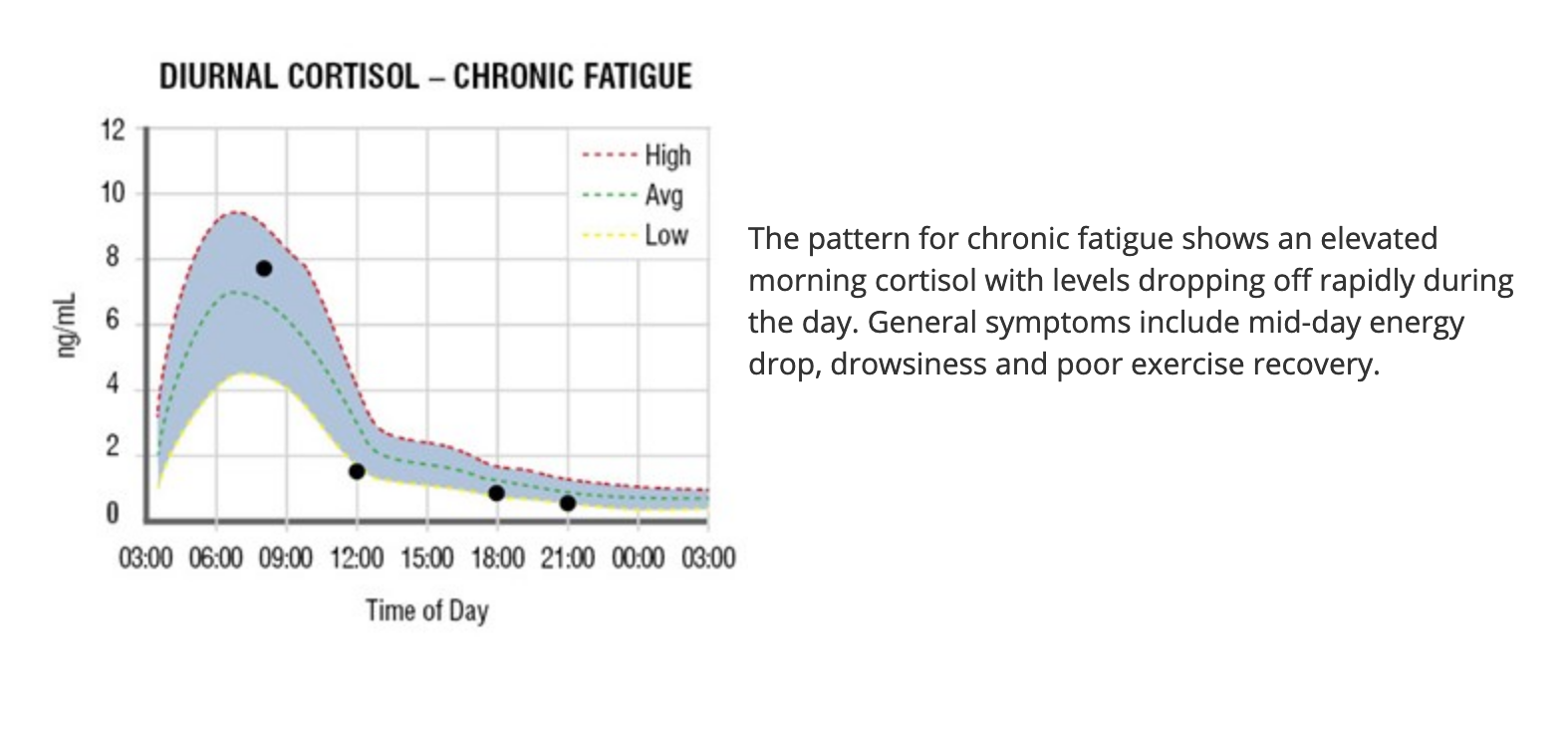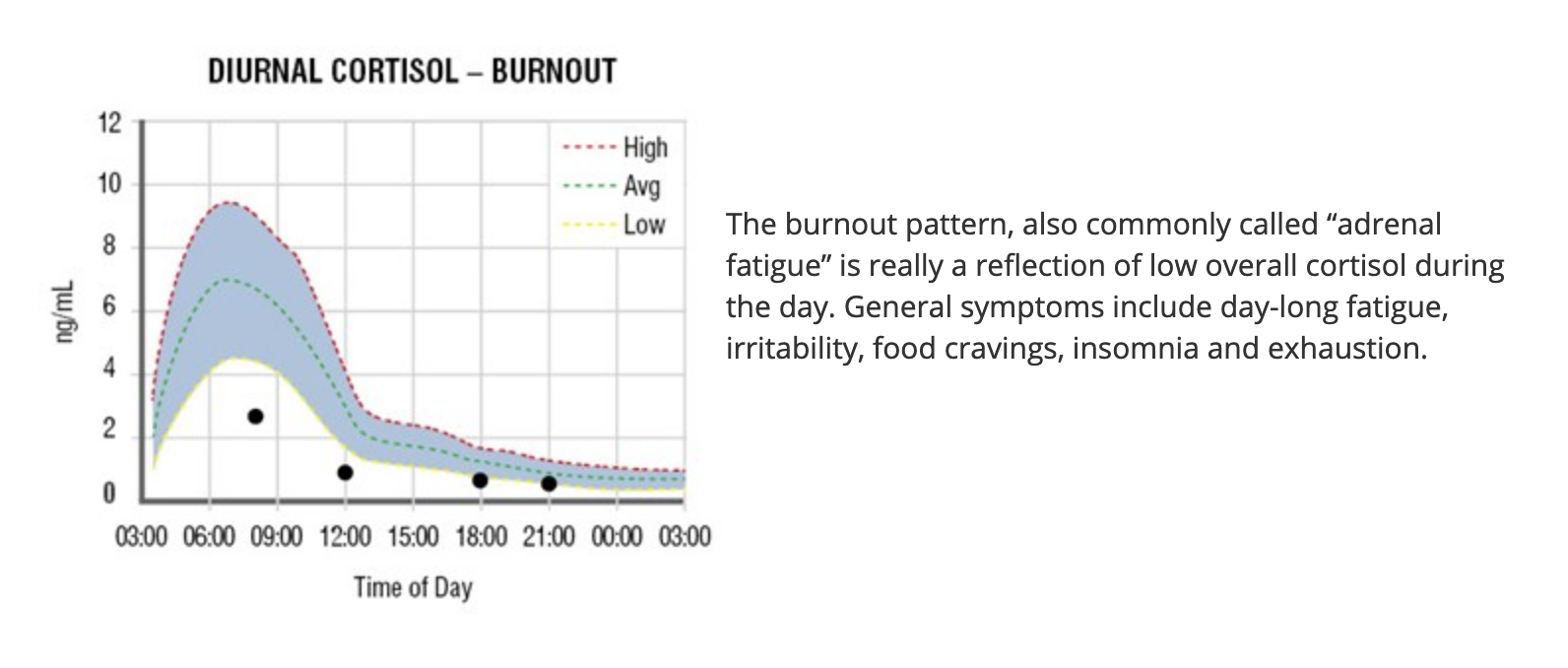Description
Adrenal Stress Profile
The adrenal glands, otherwise known as the “stress glands,” enable our bodies to cope with stress and survive. Shaped like two tiny pyramids, they sit atop the kidneys and from this central location mobilize the response to changes in our environment.
Whether stress comes from outside in the form of a natural disaster, or from within like the anxiety we experience before public speaking, it’s the adrenals’ job to help us adapt to the situation.
They accomplish this by secreting key hormones:
![]()
The primary stress hormone that fine-tunes our response to the stress of everyday living
![]() DHEA:
DHEA:
![]() Epinephrine / Norepinephrine:
Epinephrine / Norepinephrine:
Patients can conduct a saliva cortisol test or a urine cortisol test to assess adrenal hormones. This involves collecting four non-invasive samples over the course of one day, from which a diurnal cortisol curve is generated. This four-point graph reveals cortisol levels throughout the day and allows health care providers to pinpoint issues with adrenal gland function.
DIURNAL CORTISOL CURVES—Key to Understanding Stress, Fatigue & Insomnia
A commonly used tool for assessing adrenal hormones is a diurnal cortisol curve. This curve is derived from taking four daily saliva collections – typically done upon waking, before lunch, before dinner and before bed – and charting them on a 24-hour graph.
The resulting curve – also called a four-point cortisol curve or circadian cortisol pattern – reveals cortisol levels throughout the day and allows health care providers to pinpoint issues with adrenal gland function. 



Adrenal glands that are in balance produce adequate amounts of hormones to power us through the day. These hormones impact just about every process in the body, from energy production and immune activity to cellular maintenance and repair. They are key regulators of glucose, insulin and inflammation, and play a major role in bone and muscle building, mood and mental focus, stamina, sex drive and sleep cycles.
Adrenal glands that are out of balance can lead to:
Results in insomnia, anxiety, sugar cravings, feeling tired but wired, increased belly fat & bone loss
Causes chronic fatigue, low energy, food and sugar cravings, poor exercise tolerance or recovery & low immune reserves
Out of balance adrenals can lead to high or low DHEA.
Saliva testing has long been used as an accurate and reliable method for measuring cortisol because it’s simple and non-invasive, and patients can collect these samples multiple times per day. It’s easy to assess DHEA in these samples too.
* Lab Fee Included in Price















